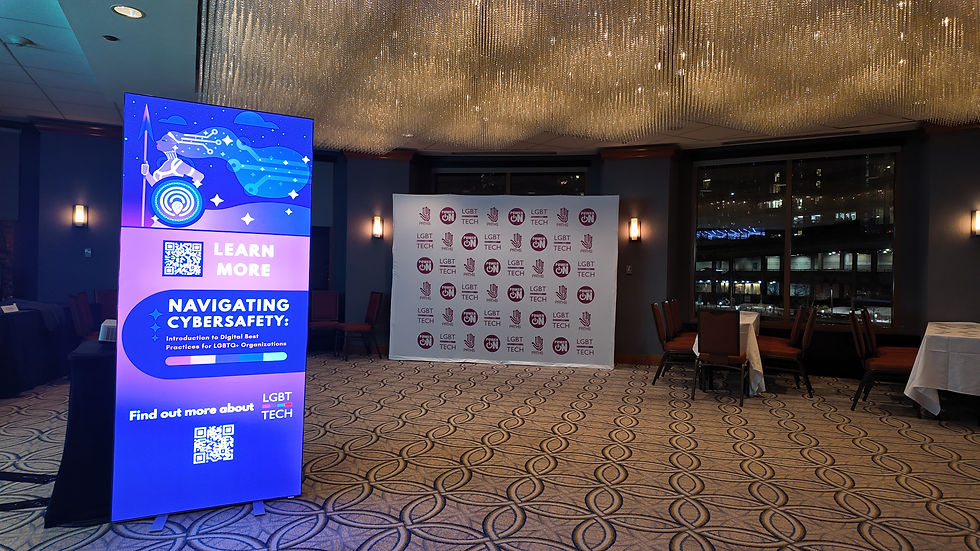LGBT Tech Panel Discusses the Human Side of Encryption
- Christopher Wood, Executive Director, LGBT Tech
- Oct 30, 2019
- 2 min read
Updated: Oct 18, 2021
On Friday, LGBT Technology Partnership, in partnership with the Internet Society, Center for Democracy & Technology, and the Open Technology Institute at New America, hosted a panel on Capitol Hill to discuss encryption and the overall technical and human elements associated with the technology.
Watch the full livestream here: https://livestream.com/internetsociety/encryptionbriefing
The esteemed panel, moderated by Michael de Moor of Committee to Protect Journalists, featured commentary from Alejandro Roark of Hispanic Technology & Telecommunications Partnership, Qasim Jafary of AARP, Hannah Quay-de la Vallee of Center for Democracy & Technology, as well as myself. We touched on a number of issues associated with encryption, but focused most of the discussion on the increasing need to improve the trust and integrity associated with the online network and the platforms and applications associated with it.
Despite the various perspectives on the issue from the panelists, it was clear that when it came to online security, encryption was seen as one of the best tools against attacks and vulnerabilities online, especially those attacks associated with marginalized communities, such as minority and LGBTQ communities.
As we have mentioned in previous blog posts and on the panel, LGBTQ individuals have always been and continue to be early adopters of technology, with an emphasis on social media, at higher percentages than the general population. These platforms allow individuals to connect with others in similar situations while at the same time protecting their identity.
Given that it is still legal to fire someone in twenty-eight states here in the United States based on sexual orientation or gender identity, it is increasingly more important that these platforms continue to protect these individuals’ identity and personal data. The presence of encryption tools helps to provide a two-fold layer of positive reinforcement: one, they help to establish a foundation of trust with these platforms to protect sensitive and personal data and identity; and, two, it allows members of the LGBTQ community to feel safe getting online and communicating with fellow LGBTQ individuals and ultimately living their true selves without the threat of exposure.
That said, not everyone across the country is thinking about their online security, so this adds a layer of complication to the overall process. Our federal government, the companies developing these technologies, and others involved in the process need to ensure that consumers are first and foremost protected, but that they also understand and are aware of the overall integrity of the network or platform they are using.
Encryption and strong privacy protections are incredibly important to everyone across the board. It is clear based on the discussion that took place on Friday that we have to work hard to identify vulnerabilities in the network, continue to develop technology around encryption, and look to find ways to better protect individual’s data and ensure their privacy online.
I, on behalf of LGBT Tech, appreciate the opportunity to have these types of educational discussions and look forward to future discussions on this very important topic.



